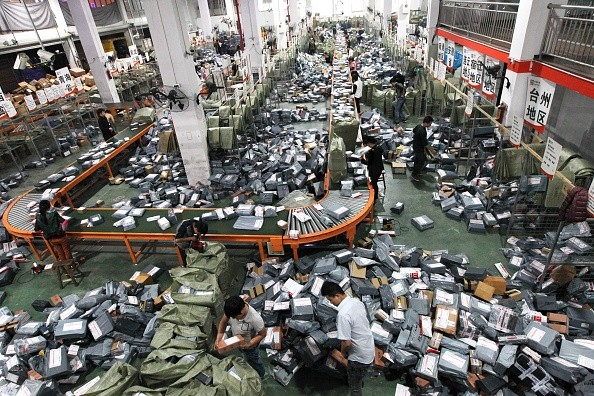The world has witnessed the booming of China's e-commerce industry in the past years, and tagged along with it is the promising growth of the courier service sector. But with their major contributions in the Chinese economy also comes the inevitable problem in handling the packaging waste these industries have been generating.
A professor from the School of Environment at Tsinghua Environment said that the assurance of the e-commerce to a safe delivery has resulted to over-packing, the Global Times reported.
In 2015, there were about 20 billion parcels shipped by couriers in mainland China.
For this number of parcels sent, 4 million tons of waste was generated, according to People's Daily as cited by the Global Times.
The South China Morning Post (SCMP) reported about the data from the Chinese Institute of Graphic Communication which showed that 10 billion cardboard boxes, 7.5 billion plastic bags and 17 billion meters of wrapping tape were used to deliver these parcels in 2015.
Interestingly, the length of the tape alone would be able to circle the equator over 400 times.
SCMP further reported that a Chinese researcher who opted for anonymity said that the bulk of the waste from the e-commerce and courier service providers goes to landfills unprocessed.
In August 2016, the State Post Bureau (SPB) took a step forward to address the growing environmental issue by promoting green packaging in the courier industry. It claimed to create a recycling system and to remove harmful chemicals in packaging by 2020.
However, the main problem in this green packaging is the cost. The price of a degradable plastic is three to four times higher than that of the non-degradable one.
Transferring this cost to the consumer by increasing the cost of delivery may be bad for the business as it may decrease the competitiveness of a courier service provider.
It is therefore important, according to experts, to have national regulation of courier companies.
It is good to note that some companies are responding to the issue, like Cainiao which is an express delivery platform under the e-commerce giant Alibaba Group.
Cainiao, through its green project launched in June 2016, has vowed to substitute 50 percent of its packaging with green materials by 2020.
One more problem is the recycling scarcity in China.
News portal Caixin, as cited by the Global Times, reported that an expert from the Qingdao Research Center said that the recycling of paper, metal and glass from delivery packages is only 20 percent. For protective packaging and plastic tape, it is almost zero.
With regard to paper waste, low profitability and lack of government subsidies are reasons why only few companies engage into it.



























